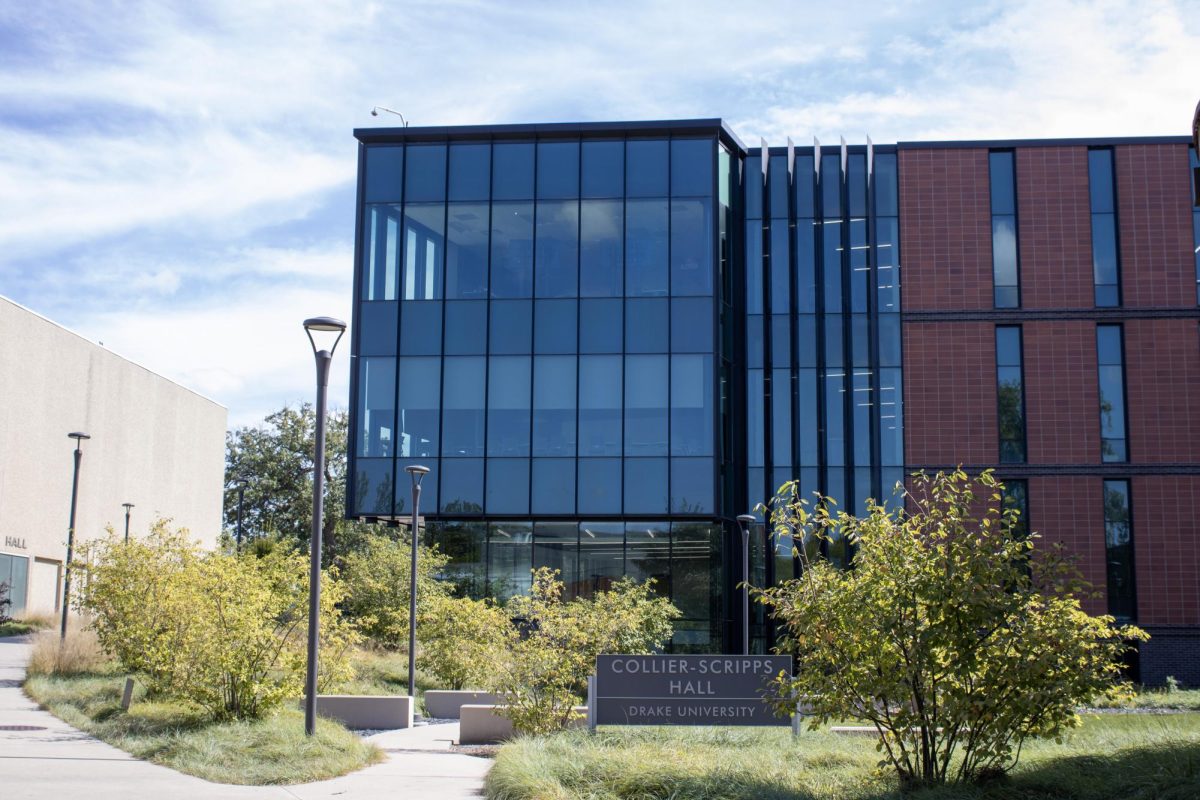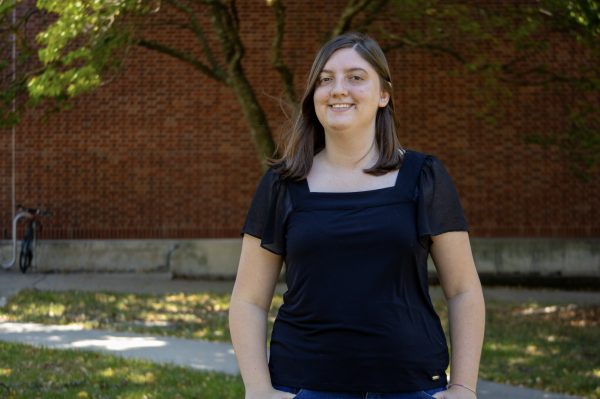This fall, the first class of teacher interns at the Drake School of Education began their first semester of classes. Under the new program, students with bachelor’s degrees not in education are able to spend a year taking core education classes before interning as teachers for a second year. After the two years, the students will graduate with Master’s of Arts in Teaching.
Ryan Wise, dean of the Drake School of Education, said that the idea for the program began a year and a half ago.
“We started having conversations in the School of Education about — ‘How do we expand our reach and grow our mission to inspire [and] support future educators?’” Wise said.
Wise and other members of the School of Education built a model of the program and took it to the Iowa Board of Education, which unanimously approved it.
Iowa currently has two other teacher internship programs, but neither offers a master’s degree upon completion in addition to teaching licensures. Wise said that the idea for the two-year teacher intern fit really well into Drake’s existing master’s program.
“Typically in our master’s programs, the courses are spread out over a longer period of time, and the culminating experience is a student teaching experience in which the students are not paid and they don’t have their own classroom,” Wise said.
Students in the teacher intern program take nine classes spread over three semesters — fall, spring and summer. The acceleration comes from the students not having to take content-related classes, as they have bachelor’s degrees already.
Students then apply for teaching internships. Drake is currently partnered with Des Moines Public School to send students to teach there. Wise said DMPS has had challenges filling teacher vacancies.
“DMPS is the largest school district in Iowa. And given Drake as an anchor institution in Des Moines, DMPS as an anchor institution, it’s just a natural partnership,” Wise said.
Wise added that DMPS and Drake have had partnerships before. The BLUE Contract, a master’s degree partnership for DMPS teachers, is one such example.
Ian Roberts, superintendent of DMPS, first heard about the teacher intern program in the summer of 2023. He thought it was on the “cutting edge of innovation in terms of talent and personnel recruitment and retention strategies,” especially given recent teacher turnover at DMPS.
Currently, the partnership acts as a “pipeline” from Drake to DMPS, which Roberts described as a “symbiotic relationship.” The pipeline will ensure that teacher intern candidates know about the opportunities at DMPS and hopefully bring teachers that stay for longer than the year the program dictates.
“We want them to come here and stay here and become their best selves here. We want to create opportunities for them to do so,” Roberts said.
Roberts added he hopes that teachers from the program will positively impact DMPS student outcomes.
“I have seen personally and observed dozens of teachers here in Des Moines Public Schools who have matriculated through Drake University and are having a tremendous positive impact on students and student outcomes,” Roberts said.
Wise said one major change during the program’s creation progress was that the Iowa legislature no longer requires three years of post-bachelor work for teachers, so people can pursue their MATs immediately post-graduation. The Iowa legislature also raised the minimum salary for teachers to $50,000 annually beginning July 1, 2025.
Wise said that he hopes the program will create “more great teachers, those that I think have a passion to do this, but maybe didn’t know when they were 17, 18, 19-years-old that they wanted to be a teacher. But now we’ve got an easier way into the classroom for career changers, or mind changers, and one that also is still really high quality.”
Todd Hodgkinson, professor of education, has overseen onboarding of people into the program. He appreciates that the internship aspect of the program and acceleration remove the cost barrier for students.
“One of the biggest barriers to people becoming teachers is the cost, especially for graduate students who are in a first career,” Hodgkinson said.
One challenge for students in the program might be not finding a placement, in which they could either spend the year student teaching or take a year off and apply the next year. Hodgkinson said that neither situation is ideal, but that they have been transparent about this to students applying.
During their year interning, the students will have a support network similar to that for student teachers, but for the entire year. They will have access to a student teaching coordinator and supervisors, mostly retired teachers, who will observe their classes periodically.
“We have a teacher shortage, and so we need quality teachers in schools. Other states have looked to lower qualifications or skip requirements, and we are hoping to maintain those requirements so that students have quality teachers, but that we get them in schools faster,” Hodgkinson said.
Anna Curtis is a student currently in the program. As a child, she wanted to be a teacher but changed her career goals in middle school. She got her bachelor’s degree at Iowa State University in public relations and worked as a copywriter but lost her job due to tech layoffs. After getting laid off, Curtis worked at a summer camp.
“I fell back in love with teaching,” Curtis said.
Curtis then looked for an MAT program, and Drake’s stood out to her for its payment aspect.
“I’ll have my own classroom, that’s something I’m really looking forward to,” Curtis said. “You get to make all the curriculum decisions and how you run your room is not up to anyone else but you. You also get a lot of creativity when you’re creating your curriculum.”








